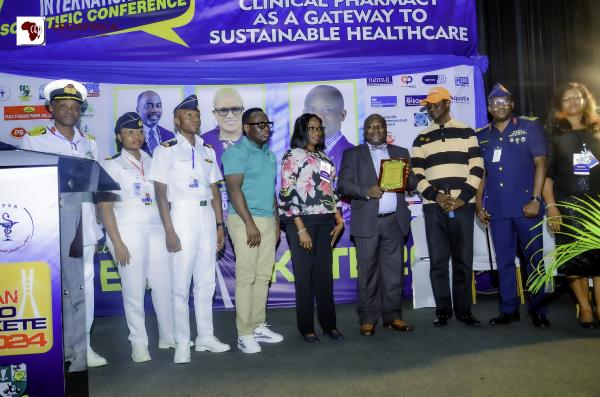
The Nigerian government has been charged on the need to regulate and prevent haphazard mining of sand from coastal beaches in order to preserve the country’s wetland.
This was the crux of the inaugural lecture presented by Adetola Jenyo-Oni, a Professor of Fisheries Ecology and Coastal Wetlands Biodiversity Management, University of Ibadan, on Thursday April 4, 2024.
The lecture, titled, ‘From Aquatic Splendour to Wealth Creation: Towards Sustainable Management of Nigeria’s Wetland Fisheries Resources,’ noted that Nigeria is richly blessed with both coastal and inland wetlands, which make up about three percent of the country’s land surface, adding that these wetlands are of ecological, economic, socio-cultural, scientific and recreational significance.
Professor Jenyo-Oni, in her presentation said the challenges to maximising Nigeria’s wetland fisheries resources include a disregard for the immense benefits of wetlands, anthropogenic activities, overfishing and depletion of fish stocks, uncontrolled urban development, climate change, among others.
She said. “Until quite recently, wetlands were regarded rather as wastelands, with marshes, lagoons and floodplains, and swamp forests falling largely to the developers of hydroelectric projects, waterfront resorts, or agriculturalists following irrigation. These myopic actions have brought many species of birds and other wildlife to the edge of extinction.
“Nigeria’s wetlands are under threat, mainly from anthropogenic activities. It is sad to observe that the country is fast losing its wetlands, as the rich wetlands are being seriously threatened by several anthropogenic and biophysical factors.
“Wetlands are disappearing at a disturbing rate as they are under pressure from population growth, pollution, drainage, dams and other water management schemes, over-exploitation of wetlands species and products, and unregulated industrial and agricultural development.”
On the need for stringent enforcement of laws and regulations on management of wetland ecosystems, Professor Jenyo-Oni said, “Currently, the government of Nigeria does not have a legally binding institutional framework for the management of wetland ecosystems. Different aspects of wetland conservation and management are currently handled by different government agencies and departments...without a clear legal framework. Lack of and poor enforcement of policies on wetland management is one of the major challenges facing community-based conservation of wetland ecosystems. Whereas there are appropriate regulations, poor institutional structures have made it very difficult to enforce the relevant policies.”
For sustainable management of wetlands, Professor Jenyo-Oni recommended the establishment of a National Habitat Conservation Programme; development of detailed national and state surveys of wetlands; promotion of training programmes to develop management and technical skills for wetland maintenance; government legislation to prevent haphazard mining of sand from coastal beaches that lead to serious erosion of the coast; intensification of research to develop artificial propagation methods of as many cultivate fish species as possible to restock all fishing areas already overfished; funding support to universities by the government at all levels towards enhancing their capacities to carry out innovative research, among others.
In an interview, the Vice Chancellor, University of Ibadan, Professor Kayode Adebowale stressed the need for research in solving Nigeria’s food security challenge. He noted, however, that the spike in the price of raw materials for fish farming is a huge challenge.
Professor Adebowale said, “In order to achieve food security in Nigeria, there is no doubt that we need to place more emphasis on research in renewable natural resources and fish is one of those areas that we need to focus on.
“The challenge we have with fish is in terms of the feed. The feed is very expensive that is why so many people are running away from aquaculture and fisheries management. So, if there is a way that all the raw materials for the production of the feed can be made available, I am sure that fish will be abundant in very large quantities.”






















